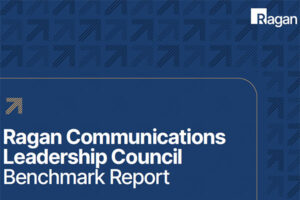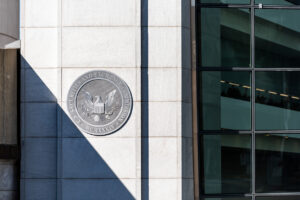Navigating the stigma around sustainability comms
How to tell authentic sustainability stories when others cut back.

Unless you’ve been living in a hermetically sealed bunker for the past decade, you’ve seen climate awareness campaigns in action. Pressured by growing concerns from customers, audiences and internal stakeholders, many organizations took stances on the sustainability issues of our time, setting new benchmarks for supply chain sourcing, zero emissions goals and more. But if some news reports are taken at face value, the winds of change might be blowing in the other direction.
According to The New York Times, some of Wall Street’s biggest power players are reversing course on their commitments to battling climate change, with Pimco, JP Morgan and State Street all departing the Climate Action 100+, a collection of top money managers organized to spur on climate change action within big companies. These moves come after more frequent politically-charged attacks on private companies, accusing them of engaging in “woke capitalism”.
“This was always cosmetic,” Shivaram Rajgopal, a professor at Columbia Business School told the Times. “If signing a piece of paper was getting these companies into trouble, it’s no surprise they’re getting the hell out.”
But for all the companies putting sustainability communications on the backburner, there are even more doubling down on this sort of messaging.
Why sustainability is a priority
While there’s no denying the political pushback against corporate sustainability messaging, other companies are doubling down on it. A report in Time describes Steelcase’s situation, in which company CEO Sara Armbruster emphasizes that going green isn’t just good for the planet — it’s good for business too.
Armbruster says the climate-related questions Steelcase receives from its customers have become more sophisticated, and it often fields enquiries from corporate sustainability officers. “There is a significant and growing section of questions related to our commitment to the planet,” she says.
Steelcase isn’t alone. A third of companies surveyed between January and February by the Chief Executives for Corporate Purpose (CECP), a non-profit that helps businesses implement programs that have a positive impact on society, said that they receive sustainability questionnaires from their customers. And 21% of the 119 respondents to the survey, shared exclusively with TIME, said they send such questionnaires to their suppliers. The top three concerns of the companies that send questionnaires all tie back to climate change: carbon footprint, greenhouse gas emissions, and renewable energy.
While some companies steer away from crafting sustainability campaigns and others head full bore into addressing them, the right path ultimately depends on your audiences and stakeholders.
But for the companies leading the climate change push, a question remains — is it done for a genuine desire to help the environment, pure business, or a combination of both?
Sometimes, the use of buzzwords in sustainability comms can lead to a phenomenon called “greenwashing”. Sure, it can be appealing to come across as an organization committed to sustainability. But if you’re just using the right terms and not backing it up with action, that likely won’t validate your comms efforts with tangible change or goodwill among employees. You can’t just slap “green” on something and call it a day.
In a recent piece for Ragan, a Gen Z communicator emphasized why this matters:
Greenwashing should be a concern for everyone. However, as PR students and aspiring professionals, it’s not just a buzzword – it’s a crucial ethical issue. We’re not only customers looking for more sustainable products; we will be the creators of those messages.
“There has been a lot of pressure for companies to give better data but there’s still no common standard on methodology so companies cherry-pick data to present their company in the best way,” said Kathryn Mulvey, accountability campaign director at the Union of Concerned Scientists. “We need stronger enforceable standards of what disclosures companies need to give to the public – so people can make decisions about who to support and where to put their talent and money,” she continued.
As it often does, finding the right way to advocate for this work without alienating one side of the political aisle comes down to communicators pulling the right levers.
Making ESG disclosures part of your story
One of the best skills a communicator possesses is the ability to tell a story about those very standards. When it comes to sustainability efforts, doing so without directly mentioning the practice of environmental, social and governance (ESG) messaging is often the key to success. You should focus on the persuasive reported elements that give your message weight— such as science, industry trends, market data, regulatory hurdles and more. Telling stories about the journey that address these issues up front can also help you avoid the buzzwords that make sustainability detractors furious and will quell the concerns of those who doubt the sincerity of your efforts.
As is always key in any successful comms campaign, you must be true to your organization’s messaging and values. Catherine Hernandez-Blades, SVP of Marketing and Communications at SAIC, told Ragan that reflecting on how authentically a message will come off from an organization sets a course for what to do next
“Look at your vision, your mission, your values,” said Hernandez-Blades. “And if it passes all those checks, then you’re probably in a good place. Because the last thing you want to be accused of is purpose-washing or greenwashing or just jumping on the bandwagon. These are important issues requiring meaningful dialogue from credible sources.”
If you’re going to communicate about sustainability, make it count. There’s a business case to be made for it, sure. But it’s equally important to be true to your organization’s voice and values when telling that story.
Sean Devlin is an editor at Ragan Communications. In his spare time he enjoys Philly sports, a good pint and ’90s trivia night.







